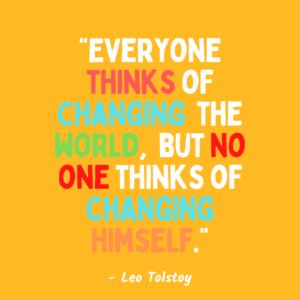
There is a lot written about what behaviour could result in someone being fired. This post is a bit different – it’s about the things we do, which will not get us fired, but should. There are roughly three types of actions: those that waste money, those that make you a legal liability, and those that slow down growth. Here are 7 examples…
This #1 should-be-fireable offence will likely not get you fired, but will for sure gain you some unflattering comments from your colleagues. Coming to a meeting without a clear idea of what you want to achieve shows a lack of respect – for the people in the meeting, for the people who will not be able to get the attention of the people who are in the meeting (because of the meeting), and last but not least – for yourself. It is a poisonous waste of productivity for the whole organisation. Meetings have an economic value per minute, which equals what you gain from it, minus what you cannot do while in the meeting. This value should be made to count. If you cannot prepare – cancel the meeting, because…
| Situation | Math | Organisational Net Outcome |
|---|---|---|
| No Meeting | 0 Potential Gain = 0 Time lost = 0 | No harm done |
| Meeting | Potential Gain (when not prepared) = 0 Time lost = Minutes in Meeting * Participants * SUM(Salary/minute) Net result = 0 – Time lost | Negative outcome for organisation |
Trust the math, use meetings consciously – they are a tool, not a value in themselves.
I have had a lot of discussions about whether shouting is appropriate at work and opinions are divided into Totally a no-go and Absolutely. Let’s see the arguments. The supporters of yelling say it is a sign of true passion – one cares strongly about things at work and wants to transmit that passion to the rest of the world. Great business people are cited as examples: Steve Jobs, Oliver Samwer, James Cameron – all of them successful and visionary leaders. Yelling is part of their idiosyncratic awesomeness. Another argument for yelling is that it can bring results (see sports, military). In the opposite corner – the quiet one – yelling is seen as a sign of weakness. It isn’t conveying passion, it only shows that the yeller has lost control – of themselves and of the situation. Asian (and other Neutral) cultures emphasise emotional control and exclude yellers from the relevant group of people. Thinking of my own emotional reaction to being yelled at or hearing someone yelling, it is a mix of fear, shame and disappointment. None of these ends up with a productive me. The key is in the purpose of the yelling: one can holler to convey something with emphasis. Imagine channeling your frustration that someone is making the wrong decision. This yelling comes from a place of care, it’s like yelling directions from a distance. It makes people smile and feel elated. The wrong kind of yelling is the “at” version of it, which comes from feeling powerless and wanting to belittle someone. No good comes of that – the yeller either hurts the company by demotivating people, or makes his or her weaknesses evident, thus losing the respect and hurting collaboration. Bottom line is, yell to make more money by bringing people up.

Don’t be the nasty crab in the crab bucket! Fearing and/or preventing your colleagues from growing is a sin with wide reaching ripple effects lowering the talent quality of your organisation. It will come back to bite you, because you will end up not having anyone to learn from. The point of work – the place where you spend most of your (semi-)awake adult life – is not to shine at any cost, it is to enjoy, to learn, to improve, to make connections. What stays beyond are the relationships and the personality you gradually build through your daily interactions. Don’t sacrifice this by screwing over someone else’s development. For an organisation, to have people onboard who are (or have been) blocking colleagues from growing and succeeding is to write off a portion of future growth. Employees, who are liable to block others, usually are either not good enough or not confident enough to execute at their role. Condoning this harms the potential of the business and means paying for sub-optimal talent.

It is the old Disagree and commit. The whole quotation is “Agree and commit, disagree and commit, or get out of the way” and it is genius. When an organisation decides for a path that is not aligned with personal views and ideas, one needs to either complain, but then REALLY join in the same direction, or leave. Consciously working against the direction an organisation wants to take is, probably, the worst thing one can spend time on. It’s a personal and organisational inefficiency. It gets worse for managers and other influential people. Keeping direction and aligning efforts is fragile at the best of times. Achieving it gives everyone a boost – it is all about vectors as we know.
I come from a collectivistic culture – I am indoctrinated to dislike individualism (this goes to bias). At work, I define myself in relation to others and have a natural drive to seek consensus. That said, I want my voice to be heard and I (secretly) think I am always right. I’m privy to the self-ego-scratching thought “These jamokes have no effin’ idea what they are doing”. As satisfactory as it can be to do affirmations of one’s own omniscience, for an organisation to run well, its team needs to always be aware of the things they do not know, and to always allow for the possibility that there may be a better way of doing things. A true sign of seniority and skill is to question and to listen – both oneself and others. Open discussions boost creativity, pieces of the answer may lie in several people, employees who feel heard are more committed and motivated. The deadly sin I’m driving at: drafting opinions top-down, fomenting a culture where repeating what the boss said is a virtue. Why? Because it makes organisations blind to innovation. How to avoid it? Listen.

This can have many forms: leave a CV of a candidate among the papers on your desk, have a table with customer tracking data sit unused in the database, leave your screen unlocked while looking at salesforce: these are all innocent actions in direct violation of the data protection regulations. They also show lack of respect for customers, employees, those who wanted to protect them and spent years drafting the regulations and pushing them through, those who will have to defend your actions come an inspection, etc. While GDPR and the rest of data protection laws could have been better and implementing & following it may be annoying, it is built on a solid principle of respect. Respect for personal space, for fair treatment, for trusting relationships in commercial exchanges. By being an employee or a business owner, everyone commits to following these regulations. If anyone disagrees, they should make this known, and follow the consequences. If they do not, it follows that everyone makes a promise to colleagues and customers that they will take appropriate care of each other’s data. Stand by your promise, that’s all I ask.

This one is simple – organisations (want to) grow, they want to make money or have an impact. This means change: from EUR50 to EUR 1 million, from 3 employees to 75, from 1 soup kitchen to 1 in every neighbourhood, from serving 5 customers a month to serving 5 in an hour. Change is what growth looks like. Hence, change needs to happen and needs to be welcome. I often see change opposed, because my job is to help organisations become more efficient. This means learning new ways of doing things. The main argument against change is that it is difficult. Well, yes – it may look difficult, but it should not be – if you can manage incoming leads in an excel sheet, keeping 78% of the information in your mind and the rest in your inbox, using a CRM will be a piece of cake. Moreover, learning new things keeps the brain young – it has long-term benefits for those who make the effort. Bottom line: opposing change is natural, but if enabled and allowed to become an organisational culture, then growth simply cannot happen.
You probably notice that most of these are related to the culture of the organisation. The best move a business can do is decide what culture the organisation needs and then make sure everyone onboard shares it. It requires hard choices, such as parting ways with skilled people, but an organisation aligned by a culture with a clear focus gives you better results, than the sum of individual skills and capabilities of the team members.